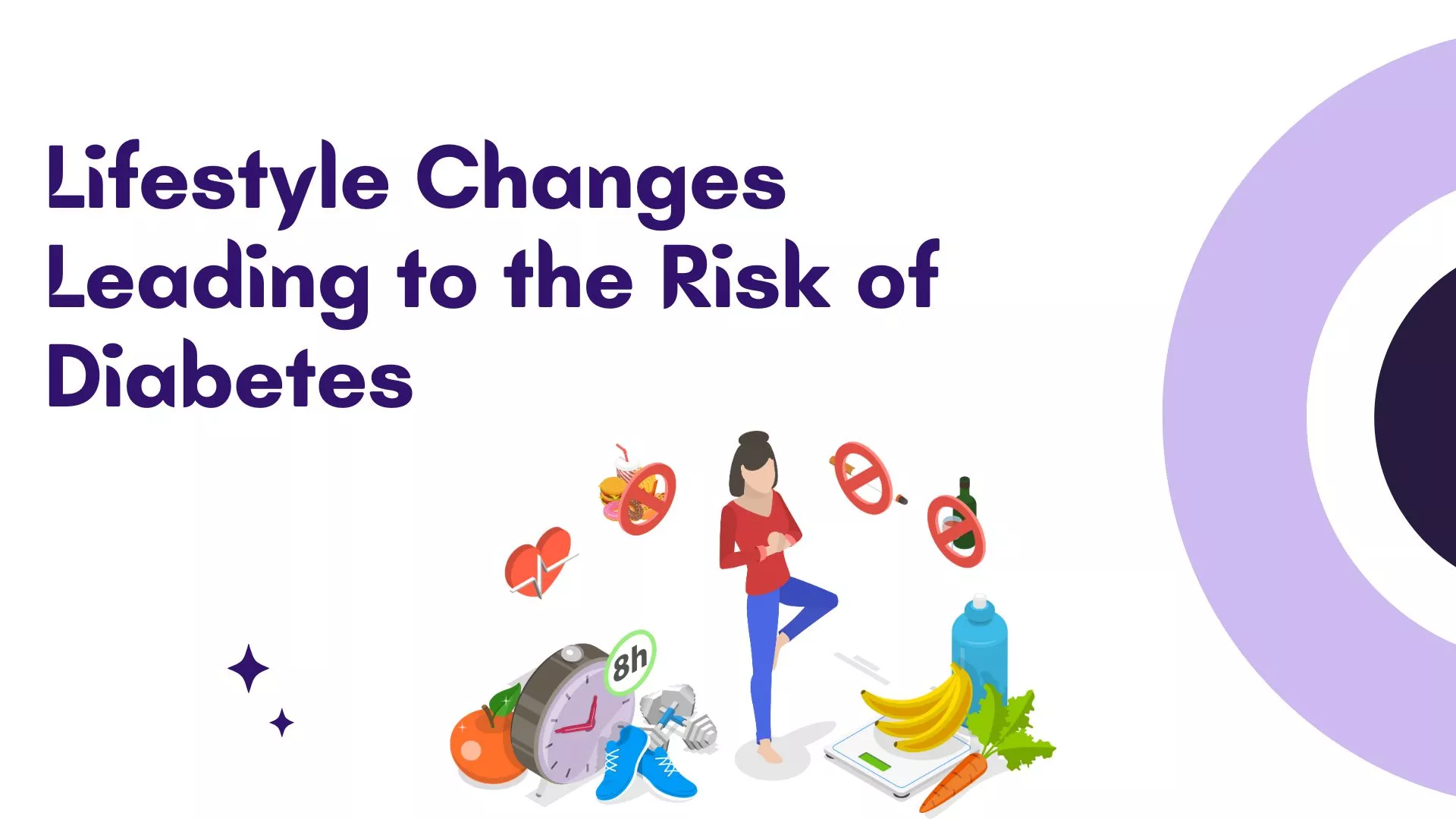Diabetes is a growing global health concern, with millions of people affected by this chronic
condition. While genetics play a role, lifestyle choices are significant contributors to the risk of
developing diabetes. Understanding which lifestyle changes increase the risk can help in making
informed decisions for better health.
1. Sedentary Lifestyle
Impact: A sedentary lifestyle, characterized by prolonged periods of inactivity, is a major
risk factor for type 2 diabetes. Lack of physical activity leads to weight gain, insulin
resistance, and poor blood sugar control.
Solution: Incorporating regular exercise into your daily routine can significantly reduce
the risk of diabetes. Aim for at least 150 minutes of moderate-intensity aerobic activity,
such as brisk walking or cycling, each week. Strength training exercises, such as lifting
weights, can also improve insulin sensitivity.
2. Unhealthy Diet
Impact: Diets high in processed foods, sugary beverages, and unhealthy fats contribute to
obesity and insulin resistance, both of which are risk factors for diabetes.
Solution: Adopting a balanced diet rich in whole foods, such as fruits, vegetables, lean
proteins, and whole grains, can help maintain a healthy weight and improve blood sugar
control. Limiting the intake of sugary beverages and processed foods is essential for
reducing diabetes risk.
3. Poor Sleep Habits
Impact: Chronic sleep deprivation and poor sleep quality are linked to an increased risk of
type 2 diabetes. Lack of sleep can disrupt the body's ability to regulate blood sugar and lead
to insulin resistance.
Solution: Prioritize good sleep hygiene by establishing a regular sleep schedule, creating a
restful sleep environment, and avoiding stimulants like caffeine before bedtime. Aim for 7
9 hours of quality sleep each night to support overall health and reduce diabetes risk.
4. Obesity
Impact: Obesity is one of the most significant risk factors for type 2 diabetes. Excess body
fat, particularly around the abdomen, increases insulin resistance and makes it more
difficult for the body to regulate blood sugar.
Solution: Achieving and maintaining a healthy weight through a combination of diet and
exercise is key to reducing diabetes risk. Even modest weight loss can have a significant
impact on improving insulin sensitivity and blood sugar control.
5. Chronic Stress
Impact: Chronic stress can lead to unhealthy coping mechanisms, such as overeating or
smoking, which increase the risk of diabetes. Stress also triggers the release of hormones
like cortisol, which can elevate blood sugar levels.
Solution: Managing stress through mindfulness, meditation, regular exercise, and social
support can help reduce its impact on diabetes risk. Developing healthy coping strategies
is essential for maintaining overall well-being.
6. Smoking and Excessive Alcohol Consumption
Impact: Smoking and excessive alcohol consumption are significant risk factors for
diabetes. Smoking increases insulin resistance and inflammation, while excessive alcohol
intake can lead to weight gain and poor blood sugar control.
Solution: Quitting smoking and moderating alcohol consumption are crucial steps in
reducing diabetes risk. Seek support from healthcare professionals or support groups to
help with smoking cessation, and limit alcohol intake to moderate levels (up to one drink
per day for women and two drinks per day for men).
Conclusion:
Lifestyle choices play a crucial role in the risk of developing diabetes. By making right
decisions about physical activity, diet, sleep, stress management, and substance use, individuals
can significantly reduce their risk of diabetes. Adopting a healthy lifestyle not only lowers the
risk of diabetes but also promotes overall well-being and longevity.











